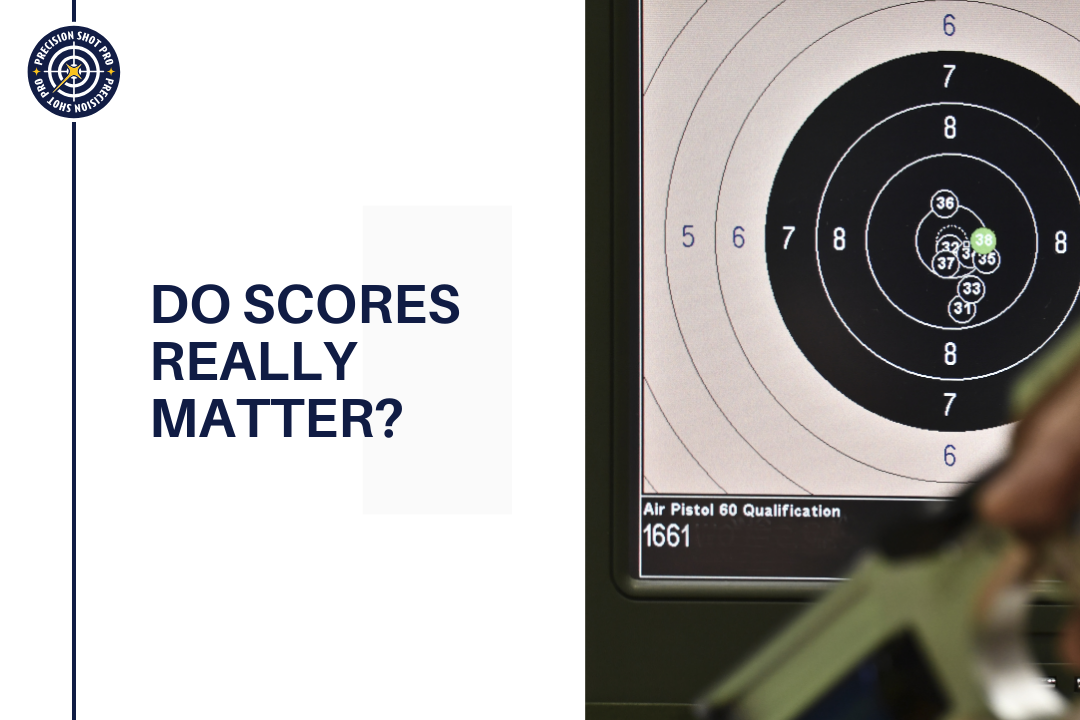In ISSF pistol shooting, it's easy to become fixated on scores. They're clear, measurable, and feel like a direct reflection of skill. But while scores are important, they don't tell the full story. Focusing solely on numbers can limit improvement and increase pressure, especially during competitions. The real key to success lies in focusing on the process, refining skills, and tracking meaningful progress.
Why the Process Matters More Than Scores
Every shot is part of a larger journey. Technical skills, mental focus, and consistent execution matter far more than a single number on the scoreboard. Modern coaching and sports science emphasise process-based goals over outcome-based goals because they lead to sustainable improvement. While scores provide feedback, they are most effective when paired with structured reflection and skill-focused training.
Common Mistakes New Shooters Make
Beginners often fall into patterns that limit progress:
1. Chasing numbers instead of technique.
Focusing on high scores without mastering fundamentals can reinforce bad habits.
2. Ignoring consistency.
Shooting fast or under varying conditions without building repeatable mechanics leads to fluctuating performance.
3. Neglecting mental training.
Stress, nerves, and focus lapses are overlooked until they hurt competition scores.
4. Recording scores only.
Logging points without context - like grip, sight picture, or groupings - makes it hard to identify improvements or weaknesses.
5. Skipping reflection.
Without reviewing practice outcomes, shooters miss opportunities to adjust drills and reinforce learning.
Avoiding these mistakes early accelerates skill development and prevents frustration.
Track Skills, Not Just Points
Instead of obsessing over points, measure technical consistency. One of the best ways to do this is by monitoring grouping size: how tightly your shots cluster on the target, regardless of their location.
Why grouping matters:
- Consistency over luck. Tight groups show repeatable technique.
- Reveal underlying trends. Scores may fluctuate, but small groups indicate real improvement.
- Targeted feedback. Group analysis helps identify issues with grip, stance, or trigger control.
Tools like the Precision Shot Pro Grouping Rings make it easy to accurately measure and track your groups over time, giving a clear picture of technical progress beyond scores alone.
The Role of Mental Training
ISSF pistol shooting is as much mental as physical. A strong mindset improves focus, resilience, and performance under pressure. Focusing too much on scores can increase anxiety, while process-focussed routines, journaling and reflection help you:
- Stay consistent shot to shot
- Handle competition stress
- Maintain confidence even after mistakes
Reflection and Continuous Improvement
Regularly reviewing practice sessions and competition performance is critical. Ask questions like:
- What skill improved today?
- Which technical issues appeared?
- How did mental state affect performance?
- What did I learn today?
Recording these insights in a structured way - through journaling or logs - enables actionable adjustments rather than chasing numbers blindly.
Build Resilience and Enjoy the Journey
Scores provide feedback, but long-term growth comes from the embracing the journey. By concentrating on skill development, mental strength, and consistent execution, shooters naturally improve their scores over time. Celebrating process milestones, like tighter groupings or improved focus, keeps motivation high and fosters a more rewarding shooting experience.
Putting It Into Practice
- Track group size alongside scores. Use technology such as SCATT or the Precision Shot Pro Grouping Rings to measure your technical consistency.
- Set process goals. Focus on improving specific skills each session, rather than aiming only for higher points.
- Journal your practice. Record technical observations, mental state, environmental conditions, and learnings.
- Reflect and adapt. Use insights to adjust training drills, routines, or mindset strategies.
- Avoid common pitfalls. Focus on consistency, technique, mental training, and structured reflection rather than just chasing numbers.
Conclusion
Scores matter - but they are a byproduct of consistent, deliberate practice, not the sole measure of your ability. Focusing on the process, tracking meaningful metrics like groupings, avoiding common beginner mistakes, and building a resilient mindset will lead to more consistent performance and long-term improvement.
Success in ISSF pistol shooting comes from mastering skills, staying mentally sharp, and embracing the journey - one shot at a time.

